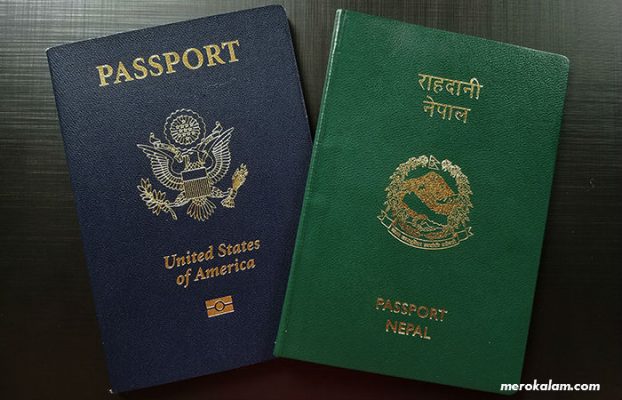Dual Citizenship: Is It Allowed in Nepal?
The concept of citizenship is a crucial component of a nation’s identity and legal structure. As the world becomes more interconnected, the notion of dual citizenship, the act of being a citizen of two countries simultaneously, has gained considerable attention. In this article, we explore the policies of Nepal regarding dual citizenship, followed by an overview of the countries that disallow multiple citizenship.
Dual Citizenship: Is It Allowed in Nepal?

The Nepal, known for its rich cultural heritage and stunning Himalayan landscapes, has a unique stance on dual citizenship. Nepal’s citizenship laws, as prescribed by the Citizenship Act, 2006, do not currently allow dual citizenship for Nepali citizens. This policy means that if a Nepali citizen acquires the citizenship of another country, they would need to renounce their Nepali citizenship.
However, there are certain exceptions to this rule. As per the amendments made in the Nepali constitution in 2015, Non-Residential Nepalese (NRN) are permitted to hold a form of dual citizenship. This special provision, often referred to as “NRN citizenship,” allows people of Nepalese origin residing abroad to maintain a connection with their home country. It’s important to note that while NRN citizenship provides many rights similar to those enjoyed by Nepalese citizens, it does come with limitations. NRNs are not allowed to vote, run for public office, or work in Nepal’s civil service.
The reasons behind Nepal’s stance on dual citizenship are complex and multifaceted, rooted in the nation’s socio-political landscape. This policy aims to preserve the country’s national security, protect its sovereign identity, and avoid potential issues related to divided national loyalties.
List of Countries That Disallow Multiple Citizenship
While many countries have embraced the concept of dual or multiple citizenship, recognizing the benefits of global mobility, several nations still disallow it. Here, we delve into a selection of these countries, shedding light on their specific policies:
1. China – The People’s Republic of China does not allow dual citizenship. Chinese law automatically nullifies the Chinese citizenship of anyone who voluntarily acquires a foreign citizenship.
2. India – India does not permit dual citizenship. However, it offers the status of Overseas Citizen of India (OCI), which provides some rights of citizenship, excluding the right to vote, run for public office, or work in government positions.
3. Indonesia – Indonesian law does not recognize dual citizenship for individuals over the age of 18. Indonesian citizens acquiring another citizenship after this age are required to renounce their Indonesian citizenship.
4. Japan – Japan does not officially recognize dual citizenship. Japanese citizens who acquire another citizenship by choice are expected to renounce their Japanese citizenship.
5. Malaysia – Malaysia strictly prohibits dual citizenship. Those found holding dual citizenship can be deprived of their Malaysian citizenship.
6. Singapore – Singapore does not allow dual citizenship. Citizens who acquire foreign citizenship are required to renounce their Singaporean citizenship.
7. United Arab Emirates – The UAE does not permit dual citizenship. However, exceptions are made for individuals who are citizens by descent.
8. Andorra – Andorra, a small nation nestled in the Pyrenees, does not allow dual citizenship. Anyone who becomes an Andorran citizen must renounce their previous nationality.
9. Austria – Austria generally disallows dual citizenship except for persons who obtain two citizenships at the time of birth.
10. Estonia – Estonia doesn’t permit dual citizenship, but exceptions are made for those who acquire multiple citizenships at birth.
The reasons behind these countries disallowing multiple citizenships vary, ranging from national security concerns, safeguarding economic interests, ensuring undivided national loyalty, to simplifying legal procedures.
It’s also noteworthy that the regulations surrounding dual citizenship can be fluid, subject to changes in a country’s political climate, public sentiment, and evolving global scenarios. Therefore, it’s always recommended to check the most recent legal stipulations before making any decisions related to citizenship.
Conclusion: The question of dual citizenship is often complex, subject to the interplay of various socio-political and economic factors. For countries like Nepal, the approach is a balanced one, disallowing dual citizenship for its citizens while acknowledging the Nepalese diaspora’s role with the provision of NRN citizenship.
Similarly, other countries that currently disallow multiple citizenships have their unique sets of considerations and exceptions. However, as our world continues to globalize and the lines between nations blur, the concept of dual citizenship could see interesting evolutions.
While this discourse continues, anyone considering acquiring another citizenship should understand the legal implications thoroughly, ensuring that they are compliant with the laws of the countries involved. It is always recommended to consult with legal experts or governmental bodies to navigate the complexities of citizenship laws effectively.
As global citizens, it’s essential that we respect and abide by these laws, understanding that they are part of a larger framework designed to balance the interests of individuals and nations alike. It’s through this respect and understanding that we contribute towards a more harmonious global society, cherishing the diversity and distinctiveness that each nation brings to our shared global tapestry.

You are missing South Korea, in the “LIST OF COUNTRIES THAT DISALLOW DUAL CITIZENSHIP” list.
What will be punishment for grant dual nepali citizenship?